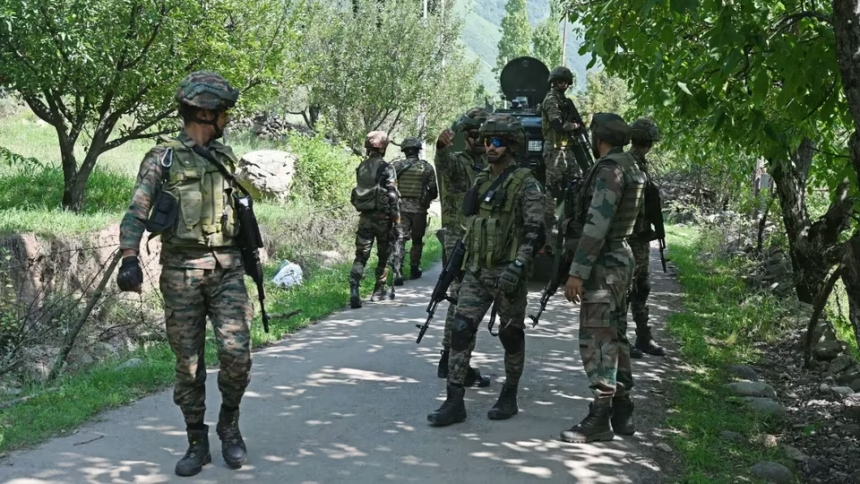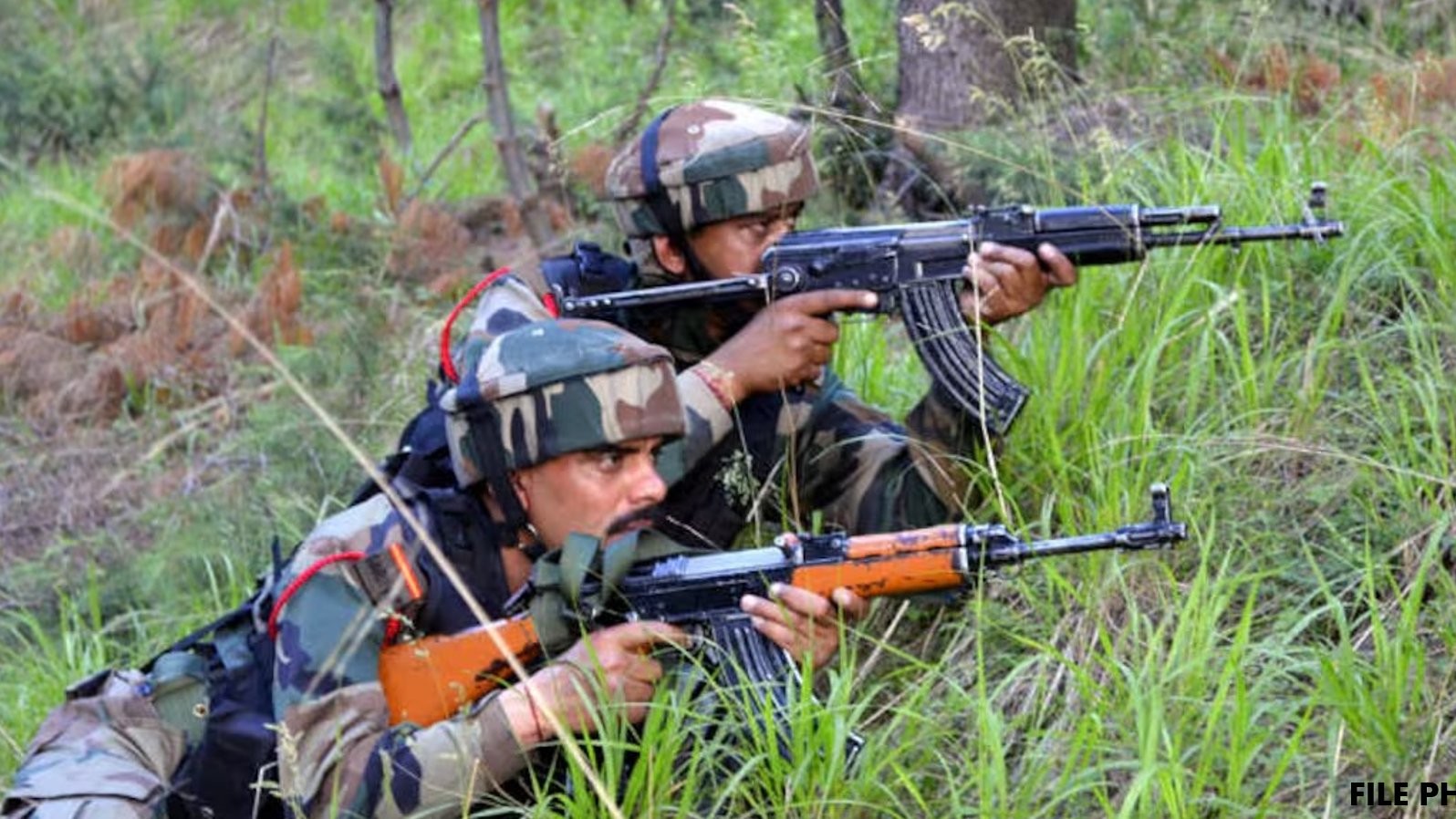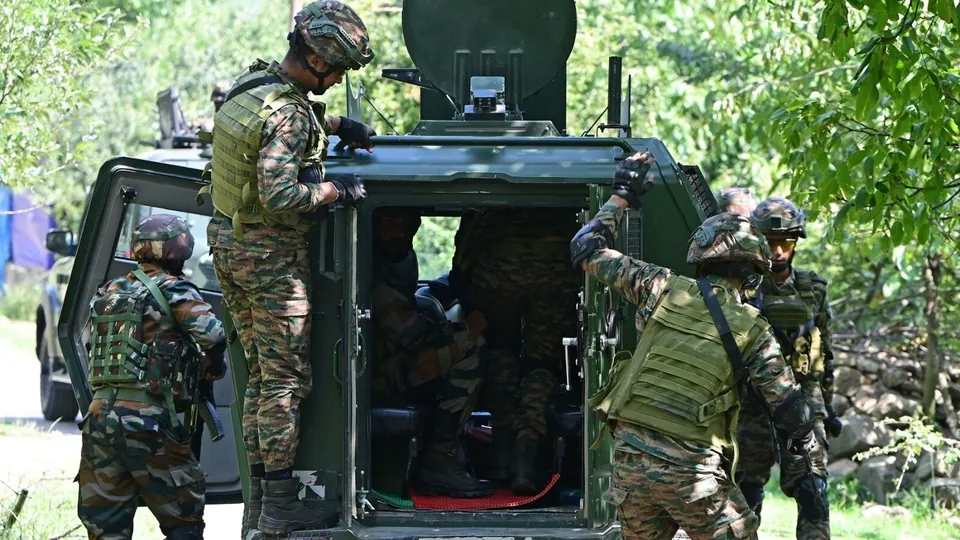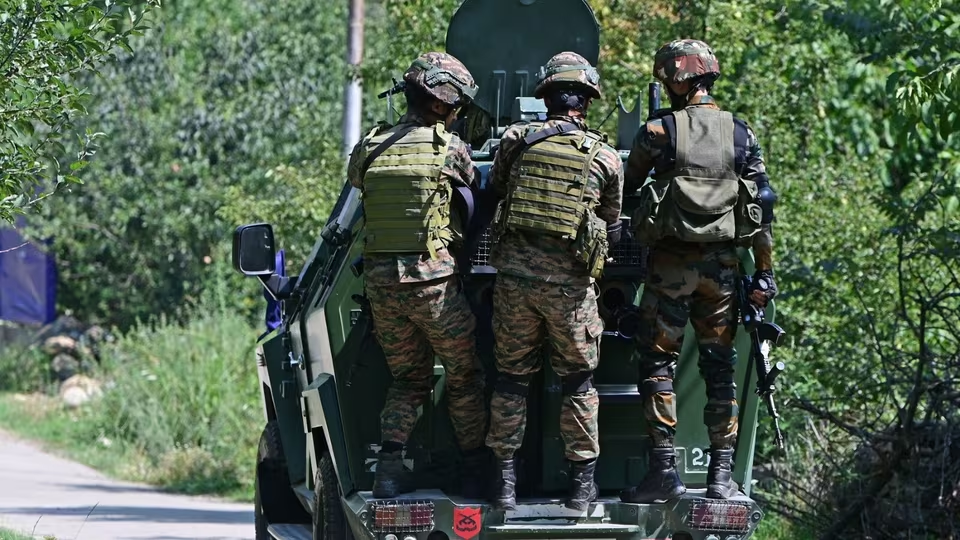NEW DELHI – Indian security forces marked a major success on 28 July 2025 with Operation Mahadev. The Indian Army, together with the Jammu and Kashmir Police and CRPF, carried out a detailed counter-terror mission in the Lidwas forests near Harwan, close to Srinagar.
The operation took its name from Mahadev Peak, a prominent spot in the Zabarwan range. Security forces eliminated three Pakistani militants linked to the banned Lashkar-e-Taiba group, including the suspected planner of the Pahalgam attack in April that killed 26 people, most of them tourists. This result strengthens India’s ongoing drive to disrupt terror activity in Kashmir and sends a direct warning to those supporting cross-border violence.
How Operation Mahadev Began
The planned operation followed the brutal events of 22 April 2025. Armed men, dressed as civilians, opened fire in Baisaran Valley—a scenic area in Pahalgam known as “mini Switzerland” among tourists.
The Resistance Front (TRF), connected to Lashkar-e-Taiba, claimed responsibility. The violence targeted non-Muslim families, leaving 26 dead. The national response was strong, and Prime Minister Narendra Modi allowed security agencies full freedom to hunt down those responsible.
After April’s attack, security agencies widened their focus with Operation Sindoor, aiming at terrorist structures across Pakistan-occupied Kashmir. The National Investigation Agency (NIA) detained two men, Parvaiz Ahmad Jothar and Bashir Ahmad Jothar, accused of helping the attackers.
In the next months, intelligence and surveillance pointed to movement in the dense Dachigam-Lidwas forest, an area often used by infiltrators because of its challenging landscape and location near traditional crossing routes.
New clues came on 18 July 2025, when forces intercepted suspicious signals from Dachigam, matching those picked up during the Pahalgam attack. The discovery, combined with drone sweeps and tips from locals, shaped the plan for Operation Mahadev. At 11 am on 28 July, a joint group including the 24 Rashtriya Rifles, 4 Para unit, Jammu and Kashmir Police, and CRPF cordoned off the Mulnar region of Harwan. The team soon met heavy resistance from militants.
The Encounter in the Forests
The confrontation took place between the ridges of Zabarwan and Mahadev, an area long used by militants as a refuge. Acting on reliable information, security teams found the group of terrorists, leading to a fierce gunfight. By the end of the exchange, all three militants had been killed and a stash of weapons had been seized.
The haul included an M4 carbine, two AK-47s, 17 grenades, and other military supplies, showing the group’s intent to carry out more attacks.
Authorities identified those killed as Pakistani nationals. Among them was Suleiman Shah, also known by aliases Hashim Moosa and Musa Fauji, a former commando in Pakistan’s army and the suspected chief organizer of the April attack in Pahalgam.
The Jammu and Kashmir Police had previously announced a twenty lakh rupee reward for information on him.
The other two, Jibran and Abu Hamza (also known as Harris or Hamza Afghani), were also linked to Lashkar-e-Taiba. Jibran had ties to the October 2023 Sonamarg Tunnel attack, which left seven dead. Forces used drone images and other evidence to confirm the identities of those killed, with this process continuing into 29 July.
Inspector General of Police for Kashmir, VK Birdi, described the operation as a long and complex effort due to the forest cover. He explained that while three bodies had been seen, proper identification would take more time, and work in the area continued to rule out other threats. The Indian Army’s Chinar Corps also posted on X, confirming the deaths and noting that the mission was still active.
Part of a Wider Push Against Militancy
Operation Mahadev fits into a larger plan to break the back of Pakistan-supported militancy in Jammu and Kashmir. The focus is now on breaking up sleeper cells and foreign fighters sent with help from Pakistan’s Inter-Services Intelligence and Lashkar-e-Taiba. The death of Suleiman Shah highlights direct links between these groups and cross-border attacks, renewing public discussions about foreign influence in the region.
The timing of the operation overlapped with a heated Lok Sabha debate on Operation Sindoor, India’s earlier strikes against terror camps in Pakistan-occupied territory. Defence Minister Rajnath Singh praised the efforts of security forces. BJP MP Baijayant Jay Panda mentioned that at least one militant killed in Operation Mahadev had links to the Pahalgam attack. In contrast, opposition MPs raised concerns over delays and questioned the government’s approach to dealing with Pakistan.
The aftermath of Operation Mahadev brought both praise and emotion. Lieutenant Governor Manoj Sinha of Jammu and Kashmir congratulated everyone involved, stating that eliminating the three foreign fighters was a significant achievement. Maharashtra’s Deputy Chief Minister Eknath Shinde also thanked the forces and Prime Minister Modi for their strong action.
For families affected by the Pahalgam attack, the news brought a sense of closure but also sadness. Rajesh Narwal, whose son Lt. Vinay Narwal was killed, thanked those involved in the operation. He called for the security forces to be honoured for their bravery. Prashant Satpathy’s wife said, with sorrow, that while her loved ones would not return, it was important for the cycle of violence to end, and she felt pride in those who took part in the operation.
Meaning Behind the Name Operation Mahadev
The operation’s name, Operation Mahadev, which refers to Lord Shiva, has deep meaning. It signals the determination of security forces to meet violence with equal strength. One senior intelligence source remarked that this effort marked the start of a push to stop terror networks flowing from Pakistan into Jammu and Kashmir. He stressed that anyone crossing the border to bring violence would find no haven.
This recent success also highlights new tactics used by Indian agencies, blending surveillance technology and communication tracking with solid groundwork. The weapons found suggest the militants were ready to strike again soon, making this operation not only a response but a preventive measure.
Although Operation Mahadev represents a strong achievement, difficulties remain. The forests around Dachigam and Lidwas are likely to stay hotspots for illegal crossings and require ongoing monitoring. Final identification of the militants will take a bit longer and might offer more on their backgrounds and connections. The action has also fired up political debate, with some critics questioning the bigger picture of the government’s security strategy.
Jammu and Kashmir’s Chief Minister Omar Abdullah commented that if the mastermind of the Pahalgam attack has truly been neutralized, it counts as a big step forward. What remains clear is the need for security groups to keep working together, sharing information, and staying alert to prevent more attacks.
Operation Mahadev proves the ability and courage of India’s security forces in their efforts to tackle terrorism. By eliminating three key foreign militants, including the leader behind the Pahalgam attack, they delivered a measure of justice and reinforced a strict policy against violence. As families mourn those lost, the outcome of this mission brings hope that Kashmir will move closer to peace and a safer future.
Sources: Hindustan Times

















